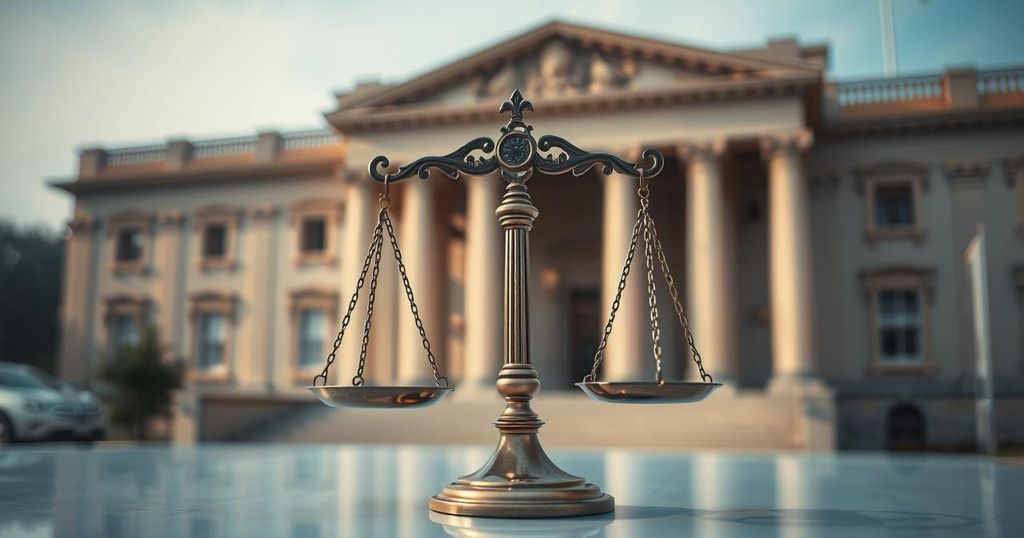Egypt demonstrates an alarming increase in repression of dissent as it prepares for the UN Human Rights Council’s Universal Periodic Review on January 28. Key figures like Hossam Bahgat and Hisham Kassem face criminal investigations, reflecting ongoing efforts to suppress criticism and prevent protests. Amnesty International highlights the contradiction between the government’s international claims of improving human rights and its actions of detaining critics.
Egyptian authorities have intensified their crackdown on dissent ahead of the UN’s Universal Periodic Review slated for January 28. This resurgence is marked by arbitrary detentions and politically motivated investigations against critics. Amnesty International highlights these actions, pointing out the government’s contradictory stance as it prepares to showcase its human rights record internationally while simultaneously silencing opposition.
In January alone, significant figures such as human rights defender Hossam Bahgat and opposition politician Hisham Kassem faced criminal investigations. Amidst these actions, Lotta Mogheeth, wife of a detained cartoonist, was also arrested for her interview discussing her husband’s case. TikTok user Mohamed Allam, known for his critical videos, was similarly detained, exemplifying the broader suppression of free expression.
Mahmoud Shalaby, an Egypt researcher at Amnesty International, stated, “It is a stark irony that the Egyptian government launched this crackdown just ahead of its appearance before the Human Rights Council.” The timing of these actions suggests a deliberate effort by President Abdel Fattah al-Sisi’s government to quell dissent as the anniversary of the 2011 revolution approaches, a period notorious for heightened repression.
Hossam Bahgat faced accusations of “spreading false news” and “aiding a terrorist group,” with prosecutors questioning him on EIPR’s operations. He was released on bail, but the criminal investigation remains ongoing. In a separate case, Hisham Kassem discovered he had a hearing regarding defamation charges linked to a post about alleged corruption.
On January 16, security forces arrested Nada Mogheeth at her home without a warrant. Following her interrogation, charges of “joining a terrorist group” and “spreading false news” were filed against her due to comments made in a media interview about her detained husband. Following her arrest, Ahmed Serag was also detained and faced similar charges.
In addition, Mohamed Allam was arrested for TikTok videos criticizing President al-Sisi, wherein he described issues impacting citizens due to government policies. Following a prolonged period of enforced disappearance, he reported mistreatment during detention, including torture. He remains imprisoned, accused of various crimes related to alleged terrorism.
Amnesty International’s submission to the UN emphasizes a historic and ongoing crisis regarding human rights in Egypt, particularly regarding impunity and systemic violations that have become commonplace under the current regime. As the Human Rights Council prepares to review Egypt’s record, it becomes crucial to address these pressing violations directly.
The context for the current situation in Egypt stems from a long-standing pattern of human rights abuses perpetuated by the government under President Abdel Fattah al-Sisi. As Egypt approaches a review of its human rights record by the UN Human Rights Council, the government has escalated its efforts to silence dissent and suppress free speech, aiming to project a facade of improved human rights practices despite ongoing repression.
In conclusion, the Egyptian government’s intensifying repression of dissent, evidenced by the arrest of critics and the targeting of human rights activists, underscores a grave situation ahead of the UN’s review of its human rights record. This systemic crackdown reveals a refusal to engage constructively with international standards on human rights, signaling a concerning commitment to quelling opposition rather than fostering dialogue and reform.
Original Source: www.amnesty.org






